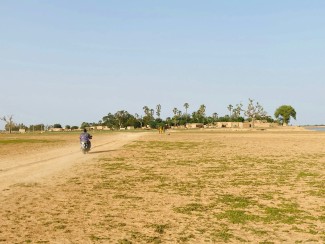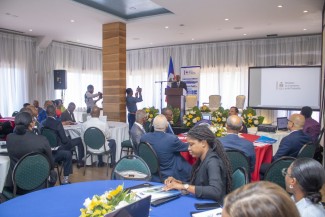Examining Aid for Trade and LDCs, aiming for evidence-based action
In the lead-up to the Aid for Trade Global Review 2019, the Enhanced Integrated Framework (EIF) is launching a series of expert articles exploring key Aid for Trade trends and discussions impacting Least Developed Countries (LDCs).
The collection, published on EIF’s Trade for Development News, is structured along the biennial event’s themes of economic diversity, inclusive trade and emerging issues. The inaugural piece covering the state of play for LDC ratification of the Trade Facilitation Agreement – and the move to more results-based Aid for Trade – will be published on 21 May 2019.
Aid for Trade is designed to help developing countries meet the Sustainable Development Goals (SDGs) by connecting them to the global trading system. And we know investment in Aid for Trade has brought returns to LDCs, which have only 0.95% of the share of global trade.
But where exactly are they seeing benefits? What work remains to be done? Where would investments have the most impact?
The analytical pieces will answer those questions, covering small businesses, diversification, the green economy and more.
Over the last 10 years, EIF has been working in partnership with LDCs to spur economic growth, create jobs and improve lives. With that mandate, the partnership is uniquely situated to offer these voices and this expertise – with LDCs at the center.
Please join us in this conversation to cultivate the knowledge needed for evidence-based action.
--------
This policy series has been funded by the Australian Government through the Department of Foreign Affairs and Trade. The views expressed in this publication are the author’s alone and are not necessarily the views of the Australian Government.
If you would like to reuse any material published here, please let us know by sending an email to EIF Communications: eifcommunications@wto.org.



